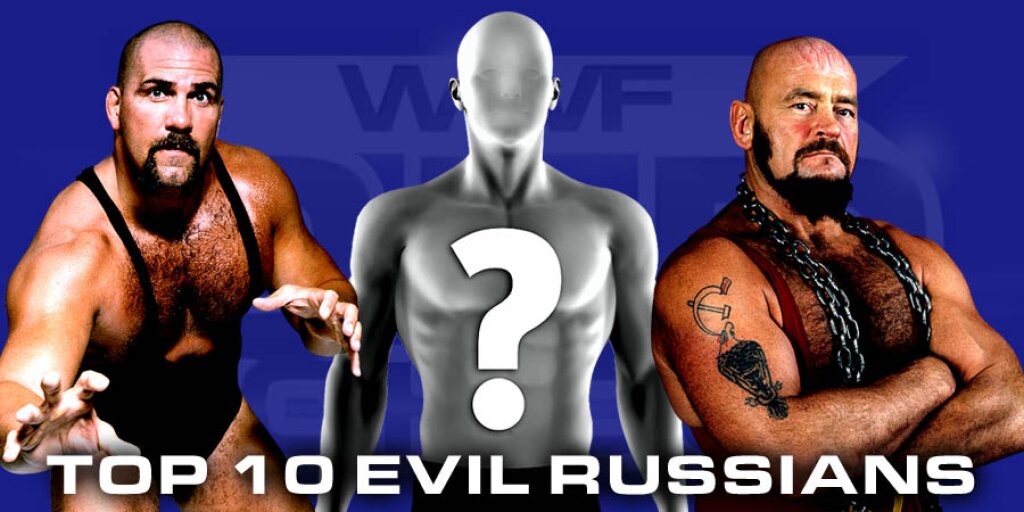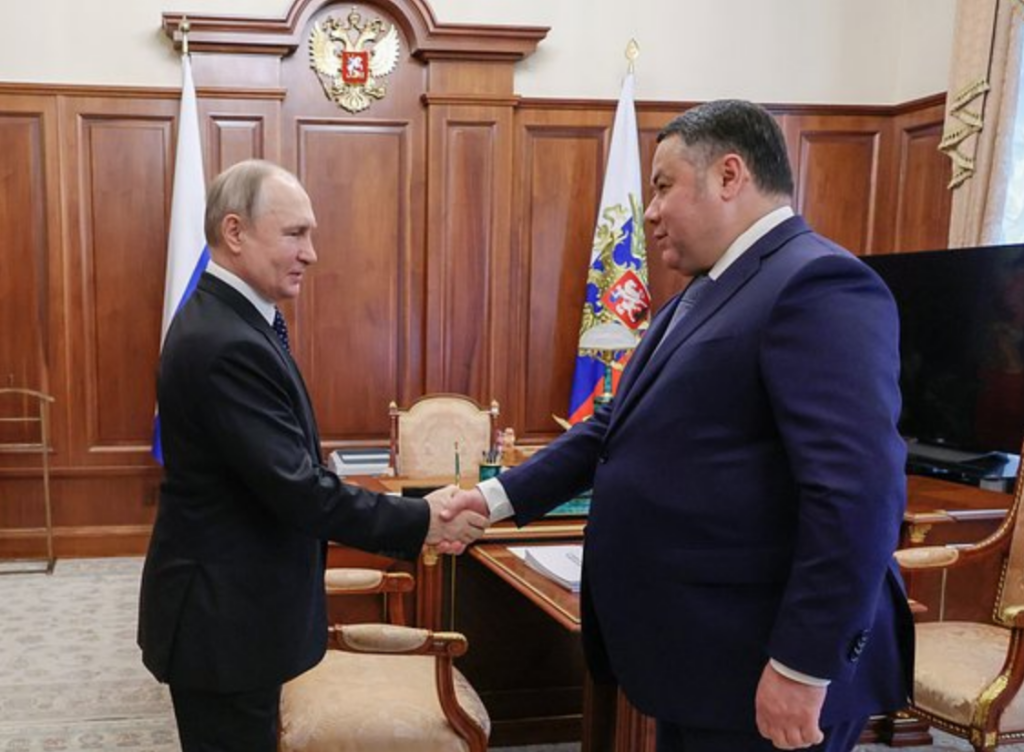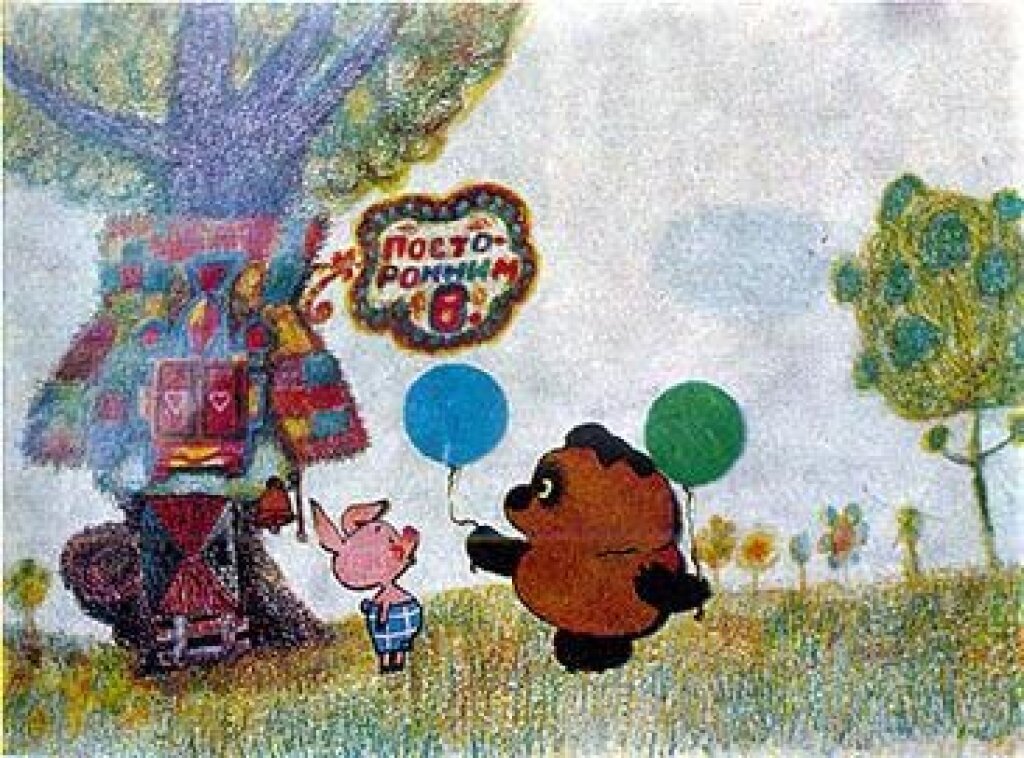When your country is run by a corrupt, lying bully with complete disdain for the rule of law, it’s easy to get self-righteous. You can grow overconfident about the virtues of the people who join you in opposing the forces that are charting out a path toward dictatorship and ruination.
And if you think that’s depressing, wait until I stop talking about America and start talking about Russia.
This is a week when the Democratic governor of Virginia’s refusal to resign rests on the defense that he isn’t actually the guy in the Klan hood on his yearbook page—he just allowed it to be posted, oh, and applied shoe polish to his face so he could moonwalk as Michael Jackson. Governor Ralph Northam’s stubborn cluelessness is only compounded by the irony of his chosen model for minstrelsy, since 1980s Michael Jackson is an odd and complicated choice as a model for blackface. That, too, is part of the point, in that it ignores the evidence of one’s eyes in favor of the archetypes buried in one’s mind. The governor is the incarnation of the stereotypical white liberal who doesn’t see color—he only sees black and white.
This brings us to the New York Times, which is dangerously on the verge of becoming the answer to a twist on an old riddle: what’s black and white and red-baiting all over?
We are in a dark moment when it comes to the media coverage of Russia. It would be simpler if this were merely a matter of reflexive Russophobia with no basis in fact, but instead we have a situation that requires (gasp!) nuance. There is a great deal of convincing evidence that Russia tried to influence the 2016 presidential election, and that the Trump team happily colluded with a foreign power (i.e., the Russian Federation). Russia’s actions in Ukraine are terrible, the government-sanctioned demonization of LGBT abominable, and the suppression of dissent inexcusable. Nor is there much to love about Putin himself. Personally, the only thing I’m grateful to him for is saving Edward Snowden from a life of waterboarding and rectal rehydration. This might be considered a low bar.
And yet…
Falling back on old stereotypes about Russia as a country full of shady spies hell-bent on world domination isn’t exactly helpful. The Russian media have been using allegations of Western “Russophobia” as a weapon against any legitimate criticism of Russian foreign or domestic policy; they don’t need our media to do their work for them. Which brings us back to the New York Times, and, in particular, an op-ed it published on February 4 by a German businessman who knew Putin back in the day.
He Blinded Me with Russian
Franz J. Sedelmayer is the author of Welcome to Putingrad, a book I’m looking forward to not reading. He was a businessman in St. Petersburg back when Putin was deputy mayor. As proof that they were close, Sedelmayer intermittently shifts between the Times-mandated “Mr. Putin” and the casual and friendly “Volodya” (the standard nickname for “Vladimir”). When he writes that “Volodya’s Russia wants to divide and to destroy democracies,” I imagine a similar op-ed about the current Chancellor of Germany (“Angie really values NATO”) or the loathsome Prime Minister of Hungary (“Vik isn’t a fan of refugees and immigration.”)
It’s a minor point, but it is also an indication of Sedelmayer’s appeal to an insider’s familiarity with something exotic. Witness his use of Russian words in his description of Putin’s tactics: "A former K.G.B. officer, he understands how to use disinformation (deza), lies (vranyo), and compromise (kompromat) to create chaos in the West and at home.” Never mind that kompromat isn’t exactly compromise; why provide a Russian word for “lying” as if it were a term of art? Granted, one can make the case for something special about vranyo, but that would require giving it a better translation than “lies.” No, Sedelmayer is merely trying to dazzle us with scary, foreign words.
Russian Corruption and Race Science
On the basis of interactions with Putin 20 years ago, Sedelmayer asserts an insider’s knowledge of Putin’s motivation that verges on the telepathic: "More than anything, he wants to be taken as an equal or a superior, trying to destroy anything with which he cannot compete”; "to him, politeness and friendship were often signs of weakness, not friendship.”
All of that is pretty standard when it comes to self-proclaimed experts on Putin; they all seem to know his goals, his hopes, his dreams, his Netflix queue. But Sedelmayer goes completely off the rails when he insists on generalizing.
Corruption is in Russia’s DNA, as it is in Mr. Putin’s.
[…]
I’ve lived in Russia. Sharing’s not the Russian way.
Where to begin? The DNA metaphor is one of the most pernicious habits of bad reasoning in contemporary discourse. More often than not, it is deployed the same way people misuse the word “literally”: to mean the opposite of what the word actually means. Something we choose as a core value, something that is decidedly not innate is passed off as natural.
Here, though, I’m not so sure. Sedelmayer is quite comfortable using a biological metaphor to condemn an entire country, people, or culture as inherently corrupt. Never mind all the historical, political, or economic explanations for corruption’s waxing and waning role in Russian life—they were simply born this way. To quote the tag line for The Barber of Siberia, Nikita Mikhalkov’s nationalist 1998 cinematic boondoggle, “He’s Russian. That explains a lot.”
Then we get to sharing: “Sharing’s not the Russian way.” Sedelmayer deserves an award for the worst last line of a mainstream op-ed. How on earth did the Times editorial board let this one through? I could go on and on about various traditions of Russian generosity, but that would be like combatting anti-Semitism by talking about all the Jews you know who aren’t actually cheap.
Imagine that, instead of Russia, Sedelmayer was talking about, say, Zimbabwe, a country that is not exactly famous for transparency and good governance. Imagine reading the phrases, “Corruption is in Zimbabwe’s DNA” and “Sharing’s not the Zimbabwean way.” Would this really sit well? As for his descriptions of Putin, imagine that he’s writing about George Soros. This is actually rather easy, given the vitriol heaped on Soros in the right-wing media. On one level, the comparison is spurious, since nearly everything that wingnuts say about Soros has no basis in fact, while Putin’s corrupt and anti-democratic behavior is something else entirely. But what I have in mind is the way in which the discussion of the individual case appeals to familiar and unhealthy ethnic or national generalizations.
The New York Times would not publish an op-ed that used one particular individual to make generalizations about African Americans, Jews, or Latinx people. Nor should it.
As for the Sedelmayer op-ed? Next time, the editorial page should just run a yearbook photo of two white men in blackface and a Klan hood.



